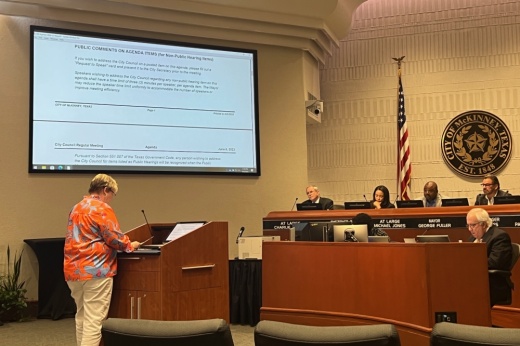The setup
McKinney was awarded just over $450,000 as part of a settlement from opioid abatement litigation at the state level.
Texas, along with a coalition of other states and subdivisions, reached a final agreement with pharmaceutical and manufacturing companies that had claims against them for their role in the opioid crisis, according to city documents.
Companies listed in the settlement include CVS, Walmart, Walgreens, and other opioid manufacturers and distributors as well as pharmaceutical manufacturers and pharmacies, according to city documents.
Texas was awarded about $1.6 billion as part of the settlement, McKinney Chief Financial Officer Mark Holloway said in a May 16 presentation. Senate Bill 1827, passed in the 2021 Texas legislative session, created the Opioid Abatement Trust Fund to collect and distribute settlement funds to recipients, including Texas cities and counties, according to city documents.
Of the $450,000 that McKinney was directly awarded, just over $141,000 has been received. The involved companies have 18 years to fund the settlements, including the remaining balance owed directly to the city, Chief Financial Officer Mark Holloway said.
According to a presentation by city staff, the approved uses for the funds include:
- The treatment of opioid use disorders and co-occurring substance use disorders
- Increasing distribution of overdose reversal medications
- Training for first responders, schools, families and community groups
- Addressing the needs of pregnant and parenting women and their families
- Ensuring appropriate prescribing and distribution of opioids along with preventing overprescribing
GraceToChange founder and Director Shannon White first spoke to council members during public comment at a May 16 meeting and requested that $100,000 of the funds received by the city be given to her organization.
The organization offers outpatient treatment and supportive services for adolescents and adults with substance use disorders, including those without insurance, White said. The organization also offers individual counseling, group sessions, and education and outreach, according to its website.
“Many people will never need the services of GraceToChange, but as the fentanyl issues continue to escalate, more will be present at our doorstep,” White said. “We want to be ready to meet that demand.”
The organization is partially funded by state and county contracts, White said. The organization has worked with students from all three McKinney ISD high schools, and 85% of clients maintain their sobriety for nine months following treatment, she said.
“We asked for these funds to be able to continue to serve the families of McKinney, maintain our quality staff, pay them a livable wage and be ready to expand our capacity as the need grows,” White said.
The action taken
The council voted to grant the organization $100,000 of the received settlement funding in a 6-1 vote at the June 6 meeting. Council Member Justin Beller voted against the grant.
Beller noted he was not in opposition to the organization receiving funding, but he would prefer the funding be distributed by the McKinney Community Grants Advisory Commission. Beller also recommended additional funding opportunities be discussed at a future meeting.
“I struggle with the way in which we’re doing this,” Beller said. “If it is transactional, I think it should be [the commission] that gives this money out because they’re good at that. If ... this is the best solution, then I think we should look at an ongoing thing that we’re looking to fund, not just because someone put some money in our pocket.”
Mayor George Fuller supported the grant request, noting he would also support discussing ongoing funding opportunities at a future meeting.
“We have an entity that has been on the front lines and has been for many years in the community, and ... the faster that we empower an organization that’s proven itself to do further work to me is an important step to take,” Fuller said.
The council directed the remaining roughly $40,000 received in the settlement to the commission for organizations to formally apply to receive funding.
For more information on state opioid settlements, click here.





